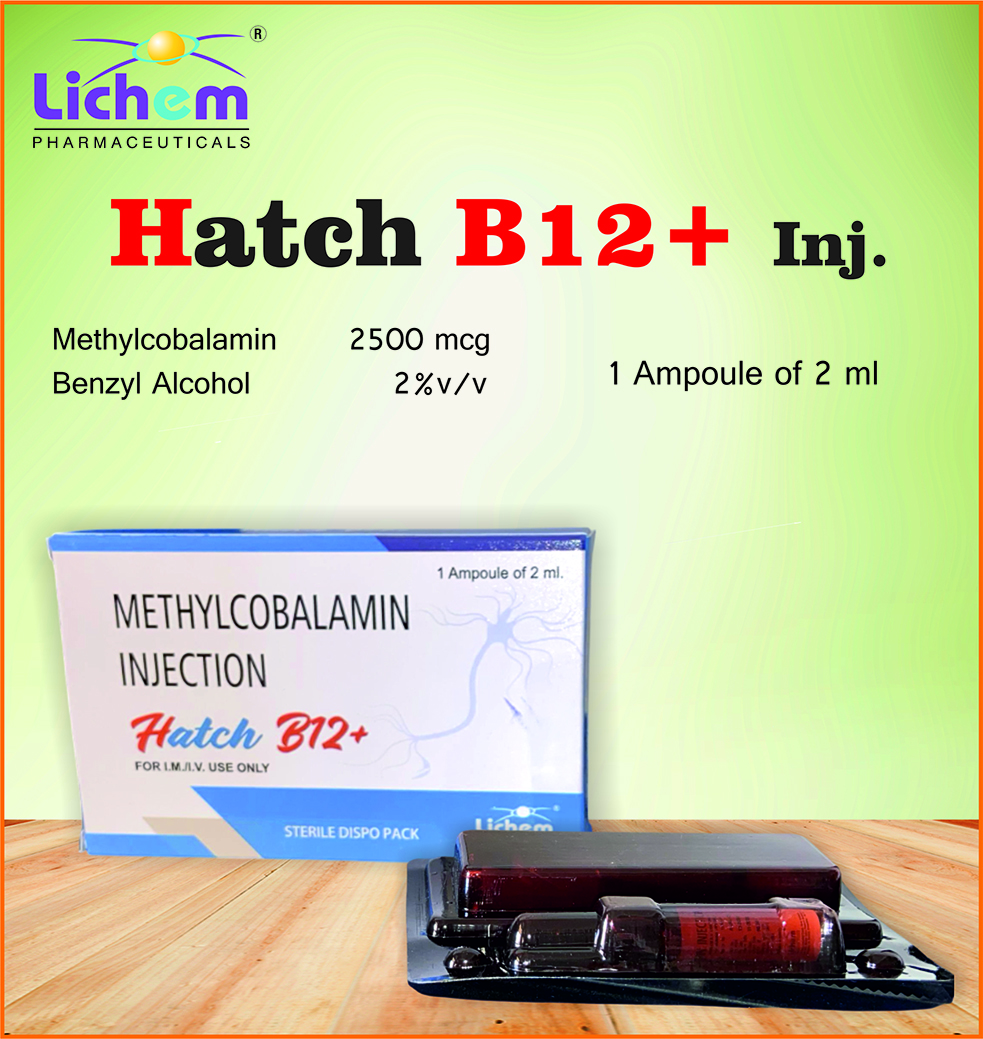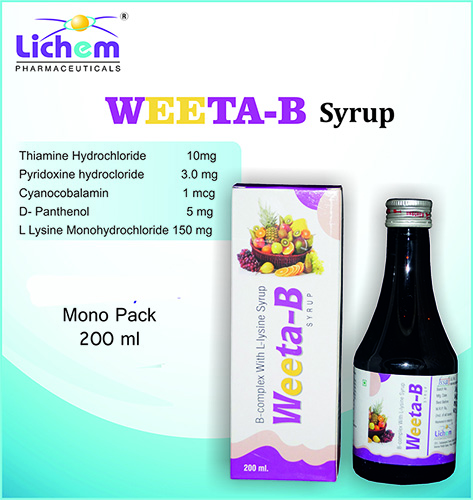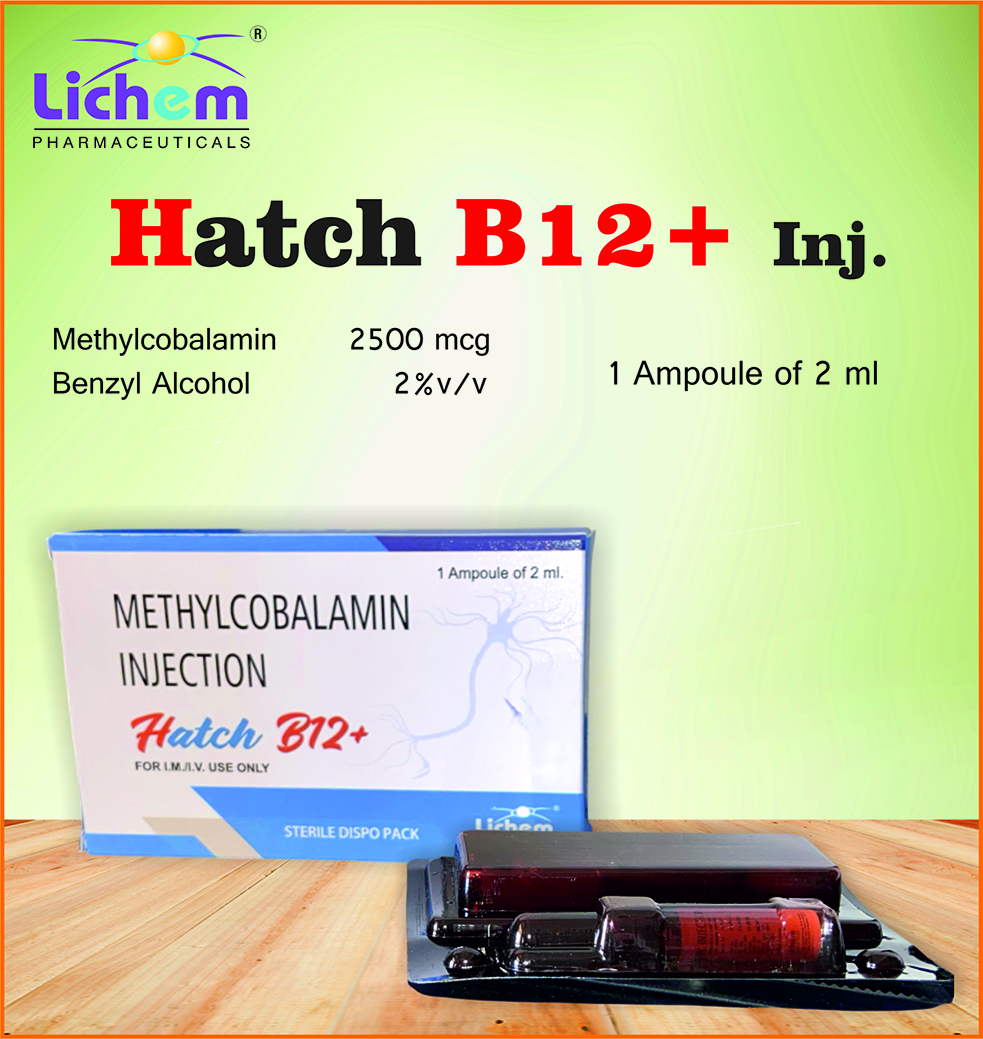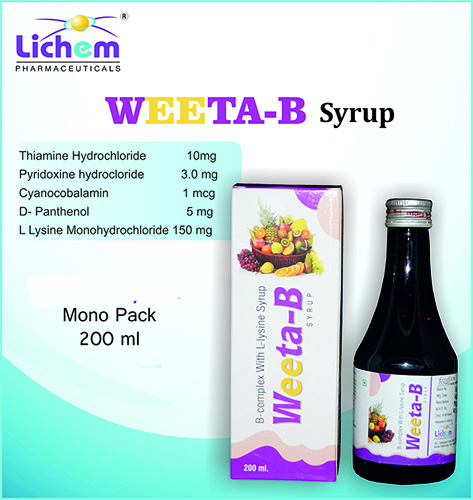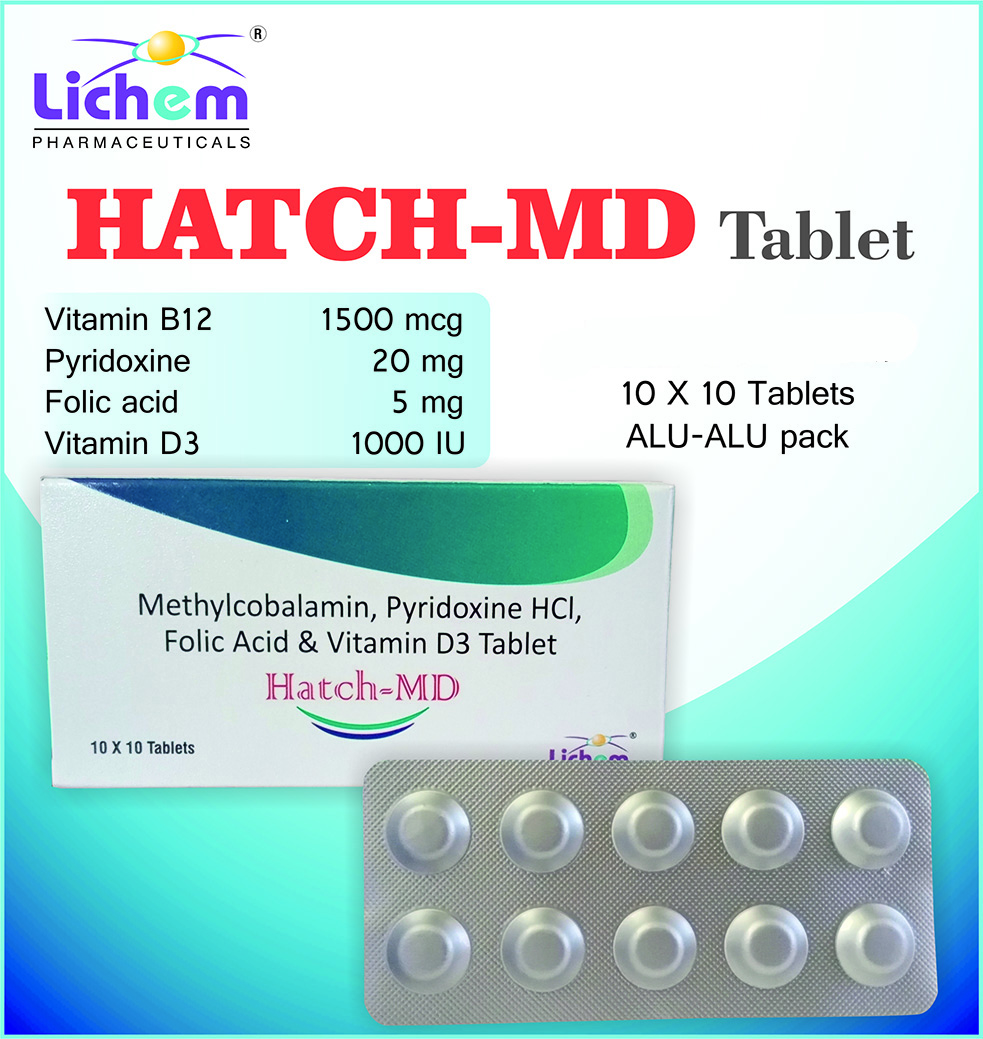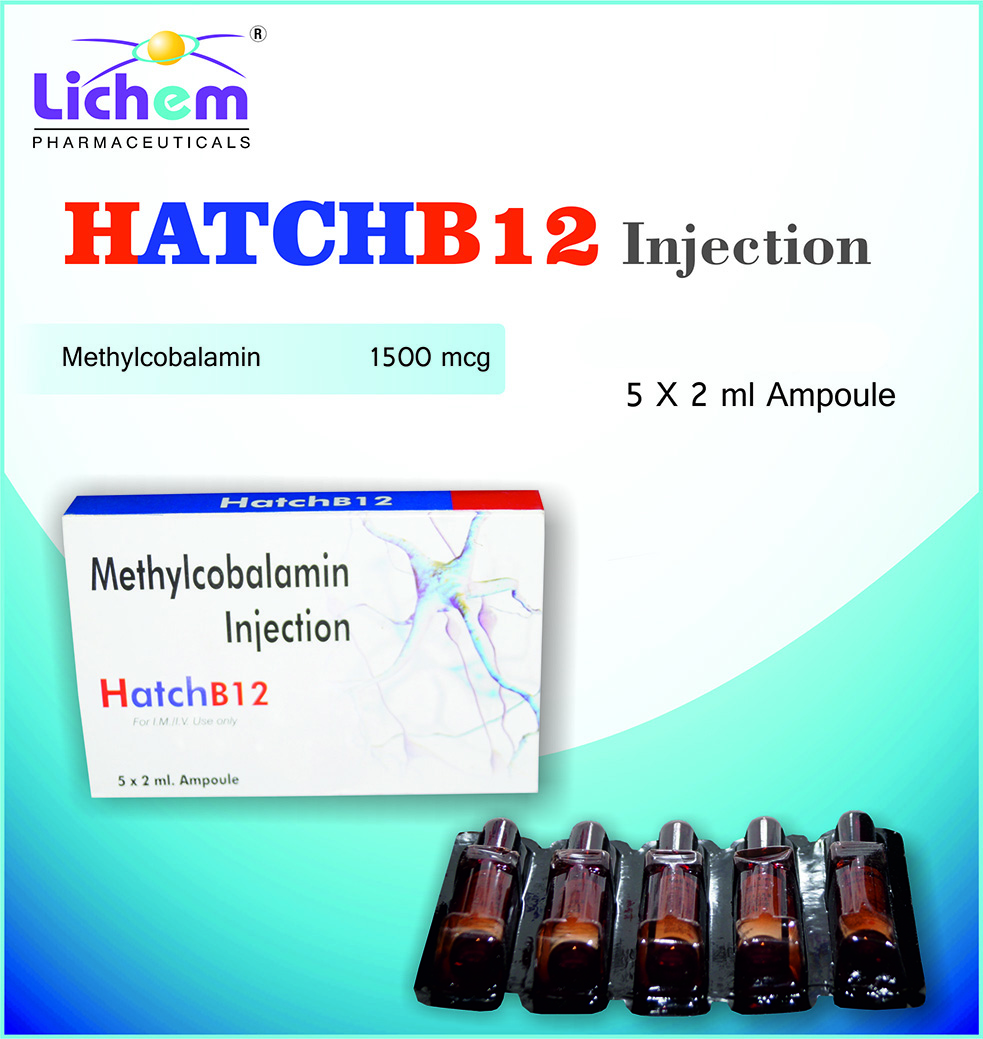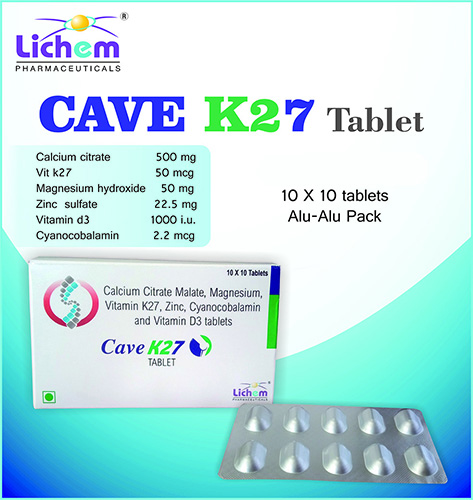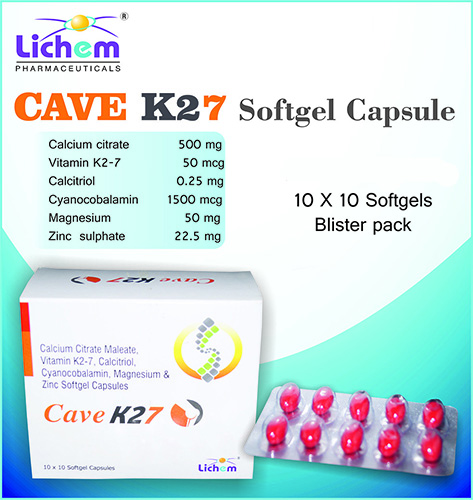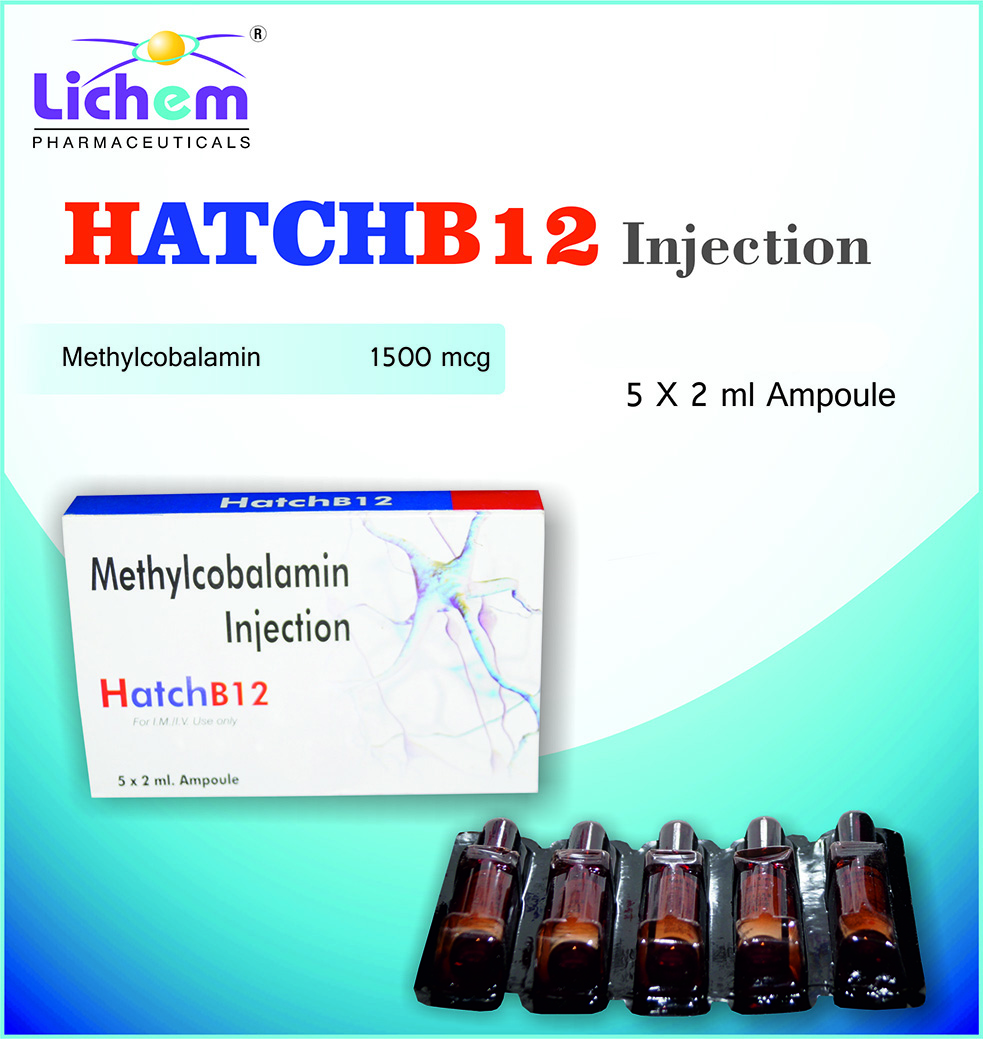Syrups & Suspensions
Composition : Thiamine Hydrochloride 10 mg + Pyridoxine hydrocloride 3.0 mg + Cyanocobalamin 2.5 mg + D- Panthenol 5 mg + Lysine Monohydrochloride 150 mg
Thiamine Hydrochloride (Vitamin B1) : Plays a role in nerve function, energy metabolism, and heart health. Deficiency can cause fatigue, muscle weakness, and cognitive problems.
Pyridoxine Hydrochloride (Vitamin B6) : Essential for brain function, red blood cell production, and protein metabolism. Deficiency can cause nerve damage, skin problems, and anemia.
Cyanocobalamin (Vitamin B12) : An essential vitamin for maintaining healthy nerve function, red blood cell formation, and DNA synthesis. A deficiency can cause fatigue, anemia, and nerve problems. However, 2.5 mcg is a very low dose, and most adults need around 2.4 mcg daily.
D-Panthenol (Vitamin B5) : Converts to pantothenic acid in the body, which is involved in energy production and carbohydrate metabolism.
Lysine Monohydrochloride : An essential amino acid that plays a role in protein synthesis, muscle building, and collagen production. It can be obtained from dietary sources like meat, fish, and eggs.
INDICATIONS
Rundown Conditions
During
Antibiotics
Geriatric Age Group
Anti T.B. Therapy
Send Message
